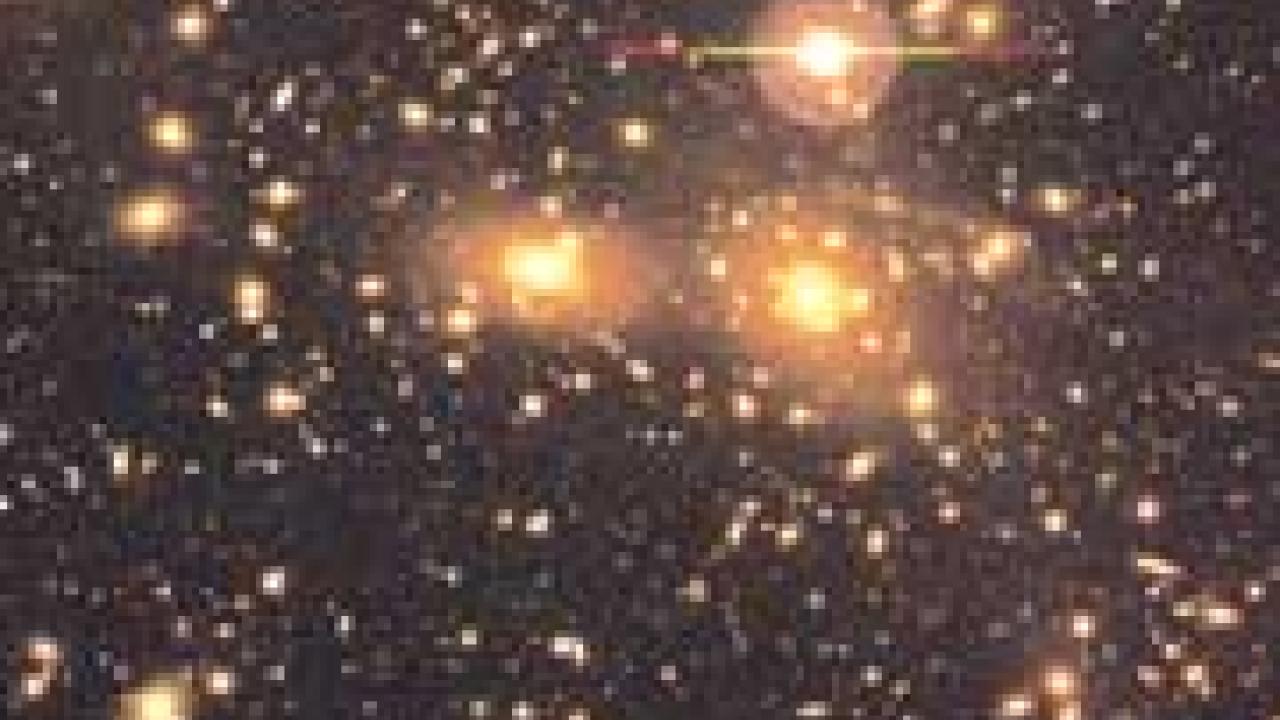The universe may have been created by an explosion within a black hole, according to a new theory by two mathematicians recently published in the Proceedings of the National Academy of Sciences of the U.S.A.
"It's a mathematically plausible model which refines the standard model of the Big Bang," said Blake Temple, professor of mathematics at UC Davis and co-author of the paper with Joel Smoller, professor of mathematics at the University of Michigan.
In the standard model of cosmology, the universe burst into existence with the Big Bang about 13 billion years ago. Since then, the universe, which contains an infinite amount of matter and is infinite in extent, has been expanding in all directions.
In the new model, the Big Bang is an actual explosion within a black hole in an existing space. The shock wave of the explosion is expanding into an infinite space, leaving behind it a finite amount of matter. The universe is emerging from a white hole. The opposite of a black hole, a white hole throws matter out instead of sucking it in.
The shockwave and the universe beyond the black hole lies in our future. Eventually, the universe will emerge from the black hole as something like a supernova, but on an enormously large scale, Temple said.
The equations that describe a black hole were written by Albert Einstein as part of the General Theory of Relativity. Einstein's equations work equally well if time runs forward or backwards. But explosive shockwaves, which include an increase in entropy, are time-irreversible. The new theory satisfies Einstein's equations while allowing the universe to expand.
Whether the matter emerging from the white hole came from matter that previously fell into another black hole is an open question, Temple said.
"It is natural to wonder if there is a connection between the mass that disappears into black hole singularities and the mass that emerges from white hole singularities," Smoller and Temple wrote.
Media Resources
Andy Fell, Research news (emphasis: biological and physical sciences, and engineering), 530-752-4533, ahfell@ucdavis.edu
Blake Temple, Department of Mathematics, UC Davis, 530-752-2214, jbtemple@ucdavis.edu
Joel Smoller, Department of Mathematics, University of Michigan, (734) 994-8624, smoller@umich.edu
